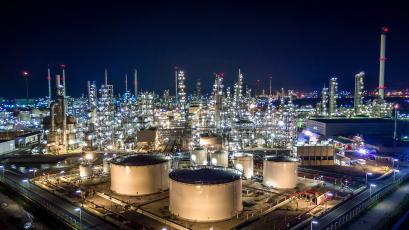By Patrick Kelly, AFPM Senior Director of Fuel & Vehicle Policy
This piece originally appeared in the March/April 2023 issue of BIC Magazine.
When Congress created the Renewable Fuel Standard (RFS), the intent was clear. As part of the Energy Independence and Security Act of 2007, RFS was supposed to build a market for American-grown biofuels and support domestic energy security. Annual mandates from the Environmental Protection Agency (EPA) requiring the addition of more and more biofuels into U.S. gasoline and diesel would give teeth to Congress’s ambitions. And the next phase of RFS post 2022, which EPA would helm, was supposed to focus on the expansion of second generation, lower carbon biofuels.
Today, EPA wants to deviate wildly from this course. Instead of maintaining the RFS as a program for liquid transportation biofuels, EPA’s RFS proposal for 2023 to 2025 would begin transforming the RFS into yet another huge government subsidy for electric vehicles (EVs). It will stifle advanced biofuels, promote first generation biofuels beyond the market’s ability to consume them and shift overall RFS growth away from liquid biofuels and into electricity. This is completely contrary to Congress’s vision.
American fuel refiners are the entities tasked with paying for the RFS. Understandably, we have long engaged on and objected to many problematic parts of the RFS, but our sector agrees that transportation fuels need to become less carbon intensive. To that end, we’ve made significant investments in cleaner fuel production and are now among the world’s top producers of renewable diesel and sustainable aviation fuel. Our concerns with the next chapter of RFS, however, are serious and should be shared by U.S. biofuel producers, champions for American energy security and anyone else who believes EPA should be bound by the will of Congress.
Most of the growth EPA has planned for the next phase of the RFS program will be in the brand-new eRIN category. EPA assumes EVs run—at least to some extent—on electricity sourced from biogas. The Agency wants to encourage more of that, so they’ve proposed making electric vehicle makers like Tesla and GM generators of eRINs. Refineries—no matter how small—will have to buy eRINs to meet their annual RFS obligations, and the automakers will be entrusted with divvying up the profits between themselves, biogas producers and electricity generators, even those operating outside the United States.
EPA is also proposing a record-high conventional ethanol mandate for the next three years even though it knows the motor gasoline supply is not capable of absorbing that much ethanol. Elsewhere, EPA would limit the use renewable diesel under the RFS. All told, EPA ballparks the cost of their proposal upwards of $25 billion each year, a sum that will make it more costly to produce gasoline and diesel here in the United States and potentially also threaten U.S. refinery investments and good-paying jobs.
In public hearings and official comments submitted to the Biden administration, refiners have urged EPA to revise their RFS proposal to reflect the following:
- eRINs do not belong in the RFS. They will discourage investment in the biofuel sector and inappropriately charge refiners and drivers with the cost of reducing electricity emissions.
- The RFS conventional mandate needs to be lower than 15 billion gallons. Oversized mandates inflate RFS compliance costs with no corresponding environmental benefits.
- EPA should recognize the potential of renewable diesel under the RFS. Refiners have made major investments in this fuel and EPA’s proposal must not cap our ability to use it.
Congress provided EPA the ability to modernize the RFS and set it on a more sustainable course. Thus far, EPA has squandered the chance. Before an RFS rule is finalized, EPA must address the fundamental flaws mentioned and take steps to derive better carbon benefits from this liquid fuel program.
The American Fuel & Petrochemical Manufacturers (AFPM) is the leading trade association representing the makers of the fuels that keep us moving, the petrochemicals that are the essential building blocks for modern life, and the midstream companies that get our feedstocks and products where they need to go. We make the products that make life better, safer and more sustainable — we make progress.


